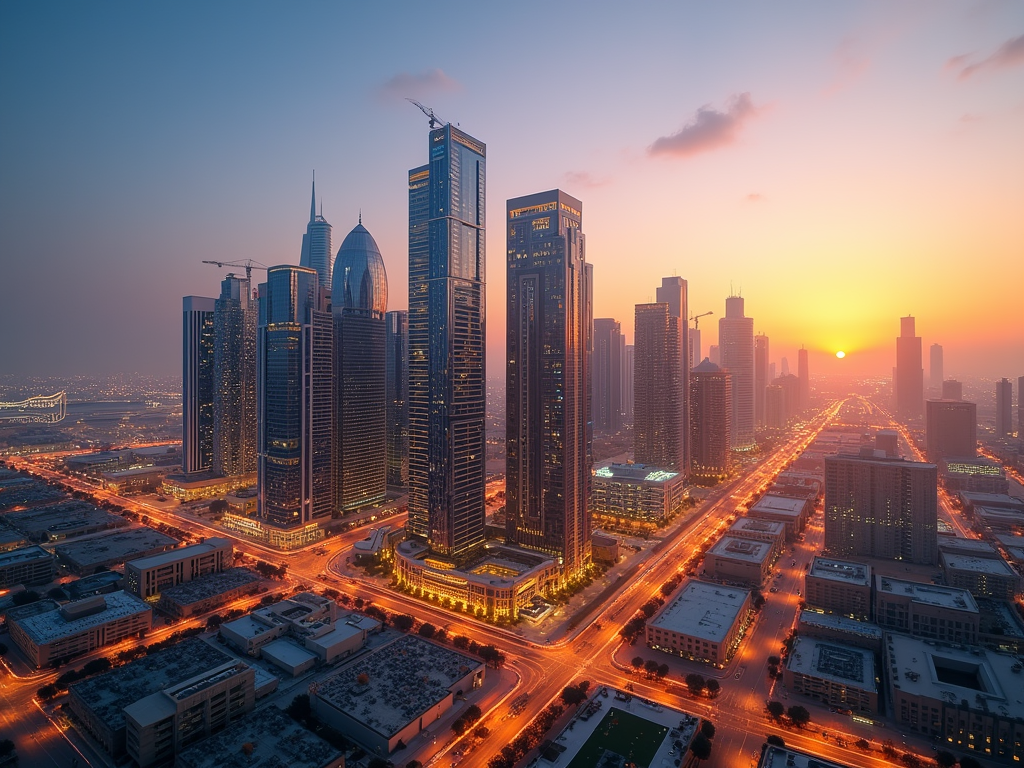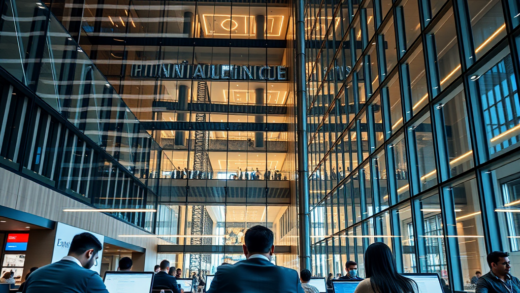Dubai’s capital markets have emerged as a pivotal player in attracting foreign investment, contributing significantly to the city’s economic growth. A well-established financial infrastructure, a favorable regulatory environment, and an array of investment opportunities make Dubai a prime destination for overseas capital. In this article, we will explore the various factors that enhance Dubai’s allure for foreign investors, including its strategic location, diverse asset classes, and robust governance mechanisms. Through understanding these dynamics, we can grasp how Dubai’s capital markets facilitate increased foreign capital inflow and contribute to its status as a global financial hub.
Strategic Location and Economic Stability

One of the primary attractions of Dubai for foreign capital is its strategic geographical location. Situated at the crossroads of Europe, Asia, and Africa, Dubai serves as a gateway to emerging markets and developed economies alike. This advantageous position enables international investors to access a wide array of markets with ease. Moreover, the economic stability of the United Arab Emirates (UAE) further solidifies Dubai’s status as an appealing investment destination.
The UAE has cultivated a reputation for economic resilience, characterized by low levels of public debt and a diversified economy. This diversity is particularly compelling, encompassing sectors such as tourism, real estate, finance, and technology. Investors are attracted to the prospect of stable returns in a dynamic market that fosters economic development and innovation.
Diverse Range of Investment Opportunities

Dubai’s capital markets offer a vast array of investment options, catering to the varying preferences of foreign investors. A few key avenues include:
- Equities: Dubai’s stock exchanges feature numerous listed companies across different sectors, allowing investors to diversify their portfolios.
- Bonds: The UAE government and local corporations often issue bonds, providing fixed-income opportunities that attract conservative investors.
- Real Estate: Dubai’s booming real estate sector presents both residential and commercial investment opportunities, bolstered by a favorable regulatory milieu.
- Islamic Finance: The city’s capital markets offer Sharia-compliant investment options, appealing to investors who prioritize ethical investment policies.
- Venture Capital and Private Equity: With a rapidly growing startup ecosystem, Dubai has become a hub for venture capital and private equity investments.
This variety not only enhances the potential for return on investment but also allows investors to construct balanced and resilient portfolios tailored to their risk appetites and investment strategies.
Robust Regulatory Framework
Another vital aspect of Dubai’s capital markets is the strong regulatory framework that governs them. Regulatory bodies such as the Securities and Commodities Authority (SCA) and the Dubai Financial Services Authority (DFSA) play critical roles in ensuring transparency, accountability, and investor protection. These organizations impose stringent compliance requirements on market participants, thus fostering a secure environment for foreign investments.
A robust regulatory regime builds investor confidence, enabling them to navigate the market without uncertainty. Furthermore, Dubai’s commitment to enhancing its regulatory landscape in line with international best practices further reassures foreign investors about the safety of their capital.
Dubai’s ongoing efforts to enhance investor confidence include initiatives such as:
- Establishing investor education programs to empower individuals and institutions.
- Promoting corporate governance standards that align with global norms.
- Implementing advanced technological solutions, including blockchain, to enhance transaction security and efficiency.
- Facilitating open dialogue between regulatory authorities and market participants to address concerns effectively.
Through these measures, Dubai’s capital markets ensure a favorable climate for foreign capital, driving sustained interest and investment from abroad.
Conclusion
Dubai’s capital markets play an essential role in attracting foreign capital, contributing to the emirate’s dynamic economic landscape. With its strategic location, diverse investment opportunities, and robust regulatory framework, Dubai effectively positions itself as a global financial center. As the world continues to evolve post-pandemic, the city’s capital markets are set to adapt, innovate, and maintain their appeal for international investors.
Frequently Asked Questions
1. What makes Dubai attractive for foreign investments?
Dubai’s strategic location, economic stability, diverse investment opportunities, and strong regulatory framework make it an appealing destination for foreign investments.
2. How does Dubai’s infrastructure support foreign capital?
Dubai has developed world-class financial infrastructure and services, facilitating seamless transactions and enhancing investor confidence.
3. What types of investment opportunities are available in Dubai?
Investment opportunities in Dubai include equities, bonds, real estate, Islamic finance, and venture capital among others.
4. How does the regulatory framework benefit foreign investors?
The regulatory framework ensures transparency, accountability, and investor protection, fostering a secure investment environment.
5. Is Dubai’s capital market evolving?
Yes, Dubai’s capital market is continuously evolving with initiatives aimed at modernization, enhancing investor engagement, and adopting international best practices.


